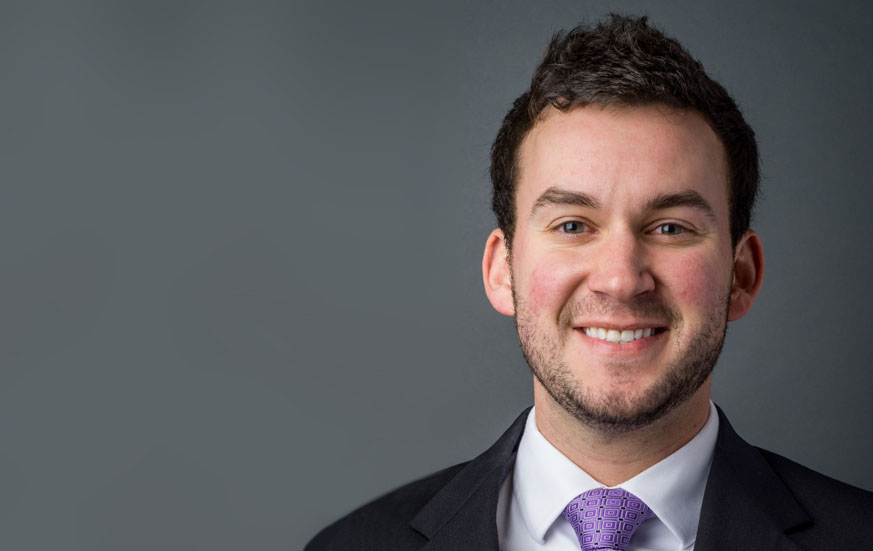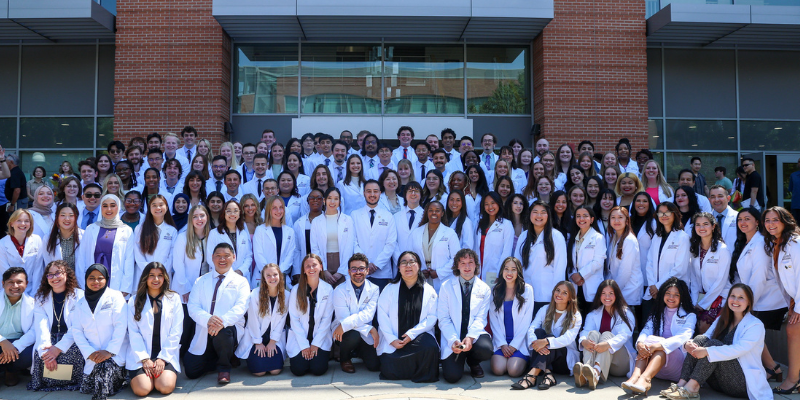Dear P1 Student:
Before you know it, you will be where I am. It may seem hard to fathom now, but soon you will be nearing graduation. And even though four years of learning separate you and I, we both will be pharmacists in the blink of an eye.
You see, we both possess a similar skill set – the capacity to learn about the pharmaceutical sciences and the ability to translate this knowledge into a career in pharmacy. My advice to you, based on all that I have learned over the past four years, is to always be willing to adapt to change, and to never stop learning. You will find that over your four years of schooling, drugs and guidelines will change. In turn, you must adapt. This is the very nature of our chosen career, and the most important thing that I have learned during my time in school. As a pharmacist, you will take this information and use it to help your patients to the best of your ability. The result will be a change in their lives – one for the better.
In looking back (forward, in your case) at the evolution of the expectations for each of our four (P1-P4) years of school, this ability to adapt will be ever-present. You will learn the basics in your first (P1) year, but then will be asked to utilize this knowledge and apply it to different patients and situations in your P2 year. Then, as you move further along into your P3 and P4 years, you will be asked to adapt even more and master the ability to provide a comprehensive assessment and plan for each patient (real or fake) that you encounter. The courses will change, the patients will change, and even the information itself will change. However, your ability to learn and adapt (which you have successfully demonstrated by gaining admission to this school), will not change. This is something unique to successful people like you and I, and something that will help you succeed.
You will find that as exams and assignments become more intense or difficult, old methods that you used in the past might not be sufficient anymore. You will change, and you will succeed. You will find that different professors and clinicians who you work with will have various methods to help you learn, some of which you may not be familiar with. You will change, and you will succeed.
You see, before I entered pharmacy school, and before I knew about all the attention to detail and dedication to my studies that is required for this degree, I had a method of learning that had always worked for me. This was my method and I was going to stick with it, because it worked before. By the end of the first semester, I had quickly learned that this method wasn’t enough. The way that I studied and digested material was not sufficient enough for what it takes to be a competent pharmacist. I had to do something different.
Before a change could be made, however, an assessment had to take place. This assessment can be as simple as asking yourself, “Why didn’t that work?” Recognizing what works and what doesn’t work will be a key to your success. Continue doing the things that work, and change the things that don’t. A simple pause and moment of ponder, a reflection, is a powerful tool that you can use to improve your abilities. Learning to improve as you go, to adapt, will help you succeed as a pharmacist for the rest of your life.
See you at graduation.
Scott Engle, Doctor of Pharmacy Class of 2016



